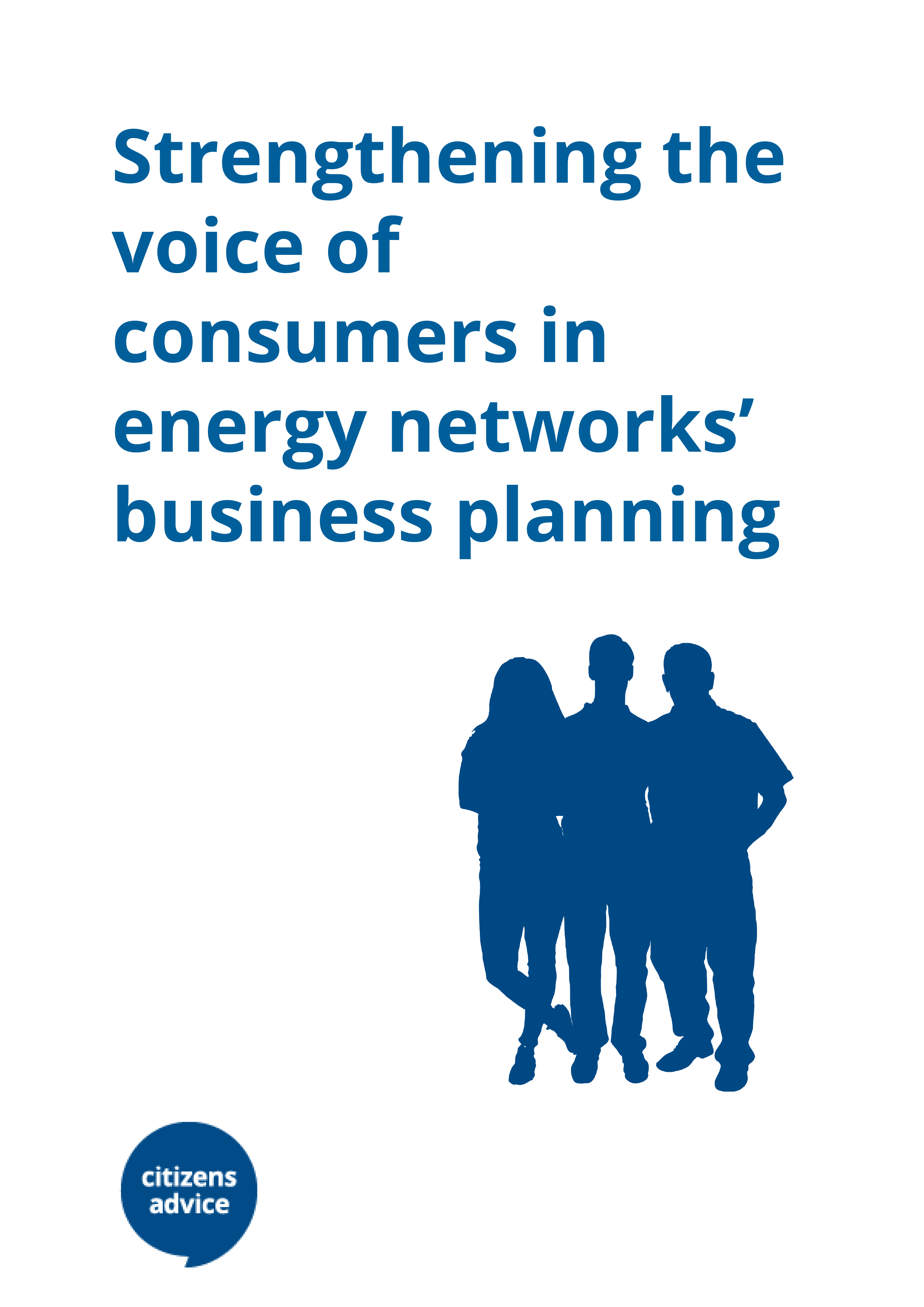Strengthening the voice of consumers in energy networks’ business planning
Strengthening the voice of consumers in energy networks’ business planning 865 KB
The engagement of people as consumers, citizens and communities is of strategic importance to making the energy transition in the UK a success. Numerous challenges lie ahead of energy network companies, the regulator and policy-makers to facilitate it, including the decarbonisation of transport and heat, the need to increase demand-side response, the integration of renewables, and others.
The transition will affect all energy consumers: they may wish to or be required to change their behaviour, pay more, install new devices in their homes and streets, or tolerate street works and interruptions to supply. It is therefore vital their voices are heard in the upcoming business planning process for energy networks (RIIO-2) and ongoing energy network activities and regulation, and more broadly in discussions around the significant changes that are occuring in the energy industry.

Citizens Advice commissioned the charity and think tank Involve to undertake research 1.46 MB into how the domestic and small business consumer voice can best be strengthened in energy network companies’ business planning.
Recommendations for energy network companies
For immediate consideration for business planning (RIIO-2) for gas transmission, gas distribution and electricity transmission companies:
The range of topics that consumers are engaged on needs to widen to reflect the amount and complexity of change in the energy system. Beyond reliability, service standards and prices, consumers should be consulted on their priorities, attitudes, values, willingness to accept, etc. relating to more complex, long-term challenges. In the report, we give examples of topics this could include.
To tackle some of these more complex, technical issues, companies should consider using deliberative methods. We offer case studies of where this has been done successfully.
Many decisions in the business planning process will involve trade-offs and disagreement. Network companies can help the regulator and challenge groups by highlighting where trade-offs exist, where disagreement lies, and why certain solutions were chosen over others. They should be transparent about which groups may be disadvantaged by certain decisions and how they plan to mitigate this.
Our research identified three spaces in which the voice of consumers can influence energy networks’ business plans and day to day activities: through direct engagement, through representatives on stakeholder panels, and in challenge groups. We would like to see companies engage with the consumer voice in all these spaces both when writing business plans and when delivering them.
We outline different levels at which engagement can take place, ranging from informing to empowering consumers and their representatives. We encourage companies to use the full spectrum.
Gas distribution companies should set up Customer Engagement Groups (CEGs) that can genuinely challenge them on their business plan and the quality of their engagement. They need to be properly resourced and supported, and have sound processes in place to ensure their independence.
Recommendations for Ofgem and Government
We call on Ofgem and the Department for Business, Energy & Industrial Strategy (BEIS) to engage more with domestic and small business energy consumers. Where issues affect the whole energy network industry, where there are systemic risks, where decisions lie with the regulator, or for long-term issues, Ofgem and BEIS may be better placed than individual companies to conduct consumer research. In the report, we give examples of topics this could include.
Ofgem should develop a standard evaluation framework that helps evaluate the quality and effectiveness of company engagement. Currently there is no shared understanding of what good engagement looks like. This is crucial when it comes to CEGs and Ofgem judging business plans and any ongoing stakeholder engagement incentive.
Ofgem should consider the use of challenge groups beyond the business planning process. We suggest using the expertise and experience from Customer Engagement Groups to form a cross-sector, GB-wide engagement group.